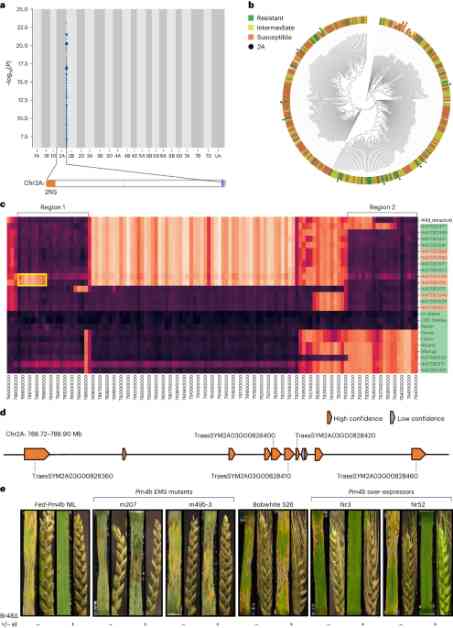Wheat blast is a devastating disease caused by the fungus Magnaporthe oryzae that poses a threat to major wheat producers. The resistance gene Pm4, known for conferring powdery mildew resistance, has been found to also provide resistance to wheat blast. This discovery was made through genome-wide association studies, k-mer based association mapping, and haplotype analysis using a diverse panel of wheat accessions.
The study revealed that the Pm4 gene, typically associated with mildew resistance, is effective against wheat blast isolates carrying the AVR-Rmg8 effector. This effector is present in the pandemic clonal lineage of the wheat blast fungus found in Bangladesh and Zambia. The Pm4 gene was identified through a detailed genetic analysis focusing on specific regions on chromosome 2A in wheat.
Interestingly, the Pm4 gene was shown to have different alleles, with some being highly effective against wheat blast, while others were less effective. The study also highlighted the importance of maintaining genetic diversity in wheat varieties, especially in breeding programs, to combat emerging diseases like wheat blast.
Overall, the research provides valuable insights into the genetic basis of wheat resistance to blast disease and underscores the potential of leveraging existing resistance genes like Pm4 to enhance wheat breeding efforts for disease resilience. The findings open up new avenues for developing wheat varieties with improved









